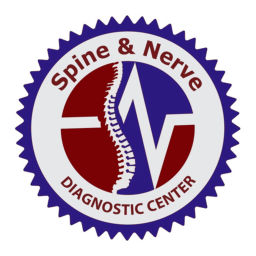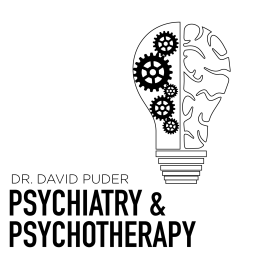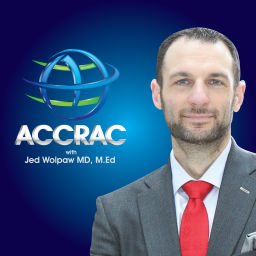
by Brian Joves, M.D.
We are physicians who practice pain management and physical medicine and rehabilitation, and believe that the main goal of practice is to improve the quality of life of our patients and communities. We will dive deep into the world of modern pain management to help healthcare providers and consumers understand various diagnoses, treatment options, and the changing landscape of pain management. This podcast is meant for educational and entertainment purposes only, and is not medical advice.
Language
🇺🇲
Publishing Since
4/5/2019
Email Addresses
1 available
Phone Numbers
0 available

December 10, 2024
Dr. Brian Joves and Dr. Jason Kung discuss the emerging evidence and clinical implications of peripheral nerve stimulation in pain medicine, highlighting significant pain reduction and improved quality of life.

November 5, 2024
<p><br /></p> <p><strong>Episode Overview:</strong> In this episode, Dr. Brian Joves sits down with Dr. Scott Pritzlaff, an esteemed pain management specialist and the residency program director at UC Davis, to tackle some big questions on the current state and future of pain medicine. They dive into Dr. Pritzlaff's recent thought-provoking editorial, "From Pain Medicine to Pain Surgery: How Our Specialty Lost Its Way," which critiques the field’s shifting focus toward procedures at the expense of comprehensive patient care. Together, Dr. Joves and Dr. Pritzlaff discuss challenges in pain medicine, including recruitment issues, the evolving landscape of interventional procedures, and the complexities of training the next generation of pain specialists.</p> <p><strong>Key Topics Discussed:</strong></p> <ul> <li><p><strong>The Evolution of Pain Medicine:</strong></p> <ul> <li>Dr. Pritzlaff explains the rapid technological advancements in pain medicine, especially in peripheral nerve stimulation, spinal cord stimulation, and minimally invasive spine procedures.</li> <li>While these advancements offer more options for patients, he warns that they can overshadow the core values of patient-centered care and non-procedural management.</li> </ul> </li> <li><p><strong>Pain Medicine’s “Identity Crisis”:</strong></p> <ul> <li>In his editorial, Dr. Pritzlaff questions the growing emphasis on procedures and the trend of “pain surgery” within the specialty.</li> <li>He emphasizes that pain management is about more than just interventions—it’s about the art of diagnosis, multidisciplinary treatment plans, and knowing when <em>not</em> to perform procedures.</li> <li>This emphasis on procedure-heavy training, he argues, risks alienating future specialists who are passionate about comprehensive patient care.</li> </ul> </li> <li><p><strong>The Challenge of Training in a One-Year Fellowship:</strong></p> <ul> <li>With the increasing complexity of pain medicine, a one-year fellowship may no longer suffice.</li> <li>Dr. Pritzlaff advocates for an expanded training period to cover essential skills, such as advanced imaging interpretation, opioid and multimodal pharmacology, and honing the “soft skills” crucial for patient communication and holistic care.</li> </ul> </li> <li><p><strong>Recruitment Issues in Pain Medicine:</strong></p> <ul> <li>Pain medicine residency applications have dropped, especially from anesthesiology—a trend driven largely by competitive anesthesiology salaries and demand.</li> <li>Dr. Pritzlaff and Dr. Joves discuss how pain medicine needs to rebrand itself to attract applicants who are passionate about improving patients’ quality of life through comprehensive care, not just procedures.</li> </ul> </li> <li><p><strong>Future Training Models and Vision for Pain Medicine:</strong></p> <ul> <li>A 2 year fellowship model or a dedicated residency program are presented as potential solutions to better prepare trainees.</li> <li>Dr. Pritzlaff imagines a program where the first year focuses on foundational knowledge and multi-disciplinary skills, and a second year sharpens advanced interventional skills.</li> </ul> </li> </ul> <p><strong>Takeaways for Listeners:</strong></p> <ul> <li>Pain medicine is at a pivotal point, balancing advancements in interventional procedures with the traditional values of comprehensive patient care.</li> <li>The field must prioritize holistic training and mentorship to foster well-rounded pain physicians who can deliver thoughtful, personalized care.</li> </ul> <p><br /></p> <p><strong>Links & Resources:</strong></p> <ul> <li>Dr. Scott Pritzlaff’s Editorial: <a href="https://examplelink.com" target="_blank" rel="ugc noopener noreferrer">"From Pain Medicine to Pain Surgery: How Our Specialty Lost Its Way"</a> in the <em>Journal of Pain Research</em></li> <li><em>Connect with Dr. Pritzlaff and Dr. Joves on Linkedin or Twitter</em></li> </ul> <p> This podcast is for information and educational purposes only, it is not meant to be medical or career advice. If anything discussed may pertain to you, please seek council with your healthcare provider. The views expressed are those of the individuals expressing them, they may not represent the views of Spine & Nerve. </p>

September 30, 2024
<p>In this episode of the Spine & Nerve podcast, Dr. Brian Joves sits down with Dr. Richard Winters, an emergency physician, leadership coach, and author, to discuss leadership, coaching, and the unique challenges physicians face as they transition into leadership roles. Whether you're early in your career or a seasoned physician looking to expand your leadership skills, this episode offers practical advice on how to build a successful career in medicine while growing as a leader.</p> <p><strong>Key Takeaways:</strong></p> <p>🩺 <strong>Leadership at All Levels:</strong> Dr. Winters explains that leadership doesn't just come from holding formal titles—it's about how we lead in our everyday roles as physicians, working with our teams, and even interacting with patients and their families.</p> <p>🔍 <strong>Understanding the Difference Between Mentorship and Coaching:</strong> Dr. Winters breaks down the critical distinction between mentorship and coaching, emphasizing how mentors provide guidance based on their experiences, while coaches help you unlock your potential by asking the right questions and facilitating growth.</p> <p>💡 <strong>Overplaying Expertise:</strong> One common pitfall physicians face, especially early in their careers, is overplaying their expertise. Dr. Winters highlights the importance of knowing when to lead as an expert and when to step back and facilitate collaboration, especially in complex, uncertain environments.</p> <p>🤝 <strong>Leading Teams & Self:</strong> As a physician leader, it’s essential to learn how to lead small teams, larger organizations, and, most importantly, yourself. Dr. Winters discusses the value of self-awareness and continuous personal development.</p> <p>💬 <strong>Quotes from the Episode:</strong></p> <ul> <li>"Expertise is valuable, but knowing when to step back and allow others to contribute can be even more powerful."</li> <li>"Physician leadership isn’t just about running committees or managing departments—it’s about how we interact, communicate, and support the people around us every day."</li> <li>"Coaching is about helping people find their own answers. It’s not about telling them what to do."</li> </ul> <p>📈 <strong>Practical Applications:</strong></p> <ul> <li><strong>For New Leaders:</strong> If you're stepping into a leadership role for the first time, this episode will help you understand the dynamics of leading teams and how to balance your role as an expert with that of a coach.</li> <li><strong>For Mentors and Coaches:</strong> Learn how to support younger physicians by balancing mentorship and coaching, helping them grow without imposing your own path on them.</li> </ul> <p><strong>Resources:</strong></p> <ul> <li>Dr. Winters' Book: <em>You're the Leader, Now What?</em></li> <li><a href="https://www.richardwinters.com" target="_blank" rel="ugc noopener noreferrer">Richard Winters Website</a></li> <li>Connect with Dr. Winters on <a href="https://www.linkedin.com" target="_blank" rel="ugc noopener noreferrer">LinkedIn</a> and <a href="https://www.twitter.com" target="_blank" rel="ugc noopener noreferrer">Twitter</a></li> </ul> <p>🎧 <strong>Don’t forget to subscribe to the Spine & Nerve Podcast</strong> for more conversations with leading experts on pain management, leadership, and healthcare!</p> <p>#LeadershipInMedicine #PhysicianCoach #BrianJovesMD #RichardWinters #HealthcareLeadership #CoachingInMedicine #SpineAndNerve #Podcast</p> <p> </p>

Orthobullets

The Curbsiders Addiction Medicine Podcast

North American Spine Society

David Puder, M.D.

The New York Times

Ramit Sethi

Dr. Jim Dahle of the White Coat Investor

Jed Wolpaw

audiochuck

The Ringer

Scott D. Weingart, MD FCCM

American Society of Pain & Neuroscience

NPR

The New York Times

The Wall Street Journal & Gimlet
Pod Engine is not affiliated with, endorsed by, or officially connected with any of the podcasts displayed on this platform. We operate independently as a podcast discovery and analytics service.
All podcast artwork, thumbnails, and content displayed on this page are the property of their respective owners and are protected by applicable copyright laws. This includes, but is not limited to, podcast cover art, episode artwork, show descriptions, episode titles, transcripts, audio snippets, and any other content originating from the podcast creators or their licensors.
We display this content under fair use principles and/or implied license for the purpose of podcast discovery, information, and commentary. We make no claim of ownership over any podcast content, artwork, or related materials shown on this platform. All trademarks, service marks, and trade names are the property of their respective owners.
While we strive to ensure all content usage is properly authorized, if you are a rights holder and believe your content is being used inappropriately or without proper authorization, please contact us immediately at [email protected] for prompt review and appropriate action, which may include content removal or proper attribution.
By accessing and using this platform, you acknowledge and agree to respect all applicable copyright laws and intellectual property rights of content owners. Any unauthorized reproduction, distribution, or commercial use of the content displayed on this platform is strictly prohibited.